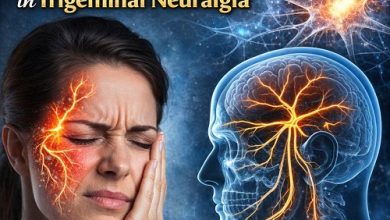Shingles Shot Linked to Lower Risks of Heart Disease, Dementia, and Early Death

Getting a vaccine to prevent a painful rash should be a straightforward personal-health decision — but emerging research suggests the shingles shot may offer benefits that go well beyond keeping blisters at bay. A growing body of observational studies presented over the past two years has found associations between shingles vaccination and lower risks of major cardiovascular events, dementia (especially vascular forms), and even all-cause mortality. While the evidence is not yet definitive proof that the vaccine causes these health improvements, the trends are striking and could have major public-health implications if confirmed.
What the studies are finding
Several large analyses and conference presentations have reported consistent patterns. A recent analysis shared at IDWeek compared people who received the recombinant zoster vaccine (commonly known by the brand name Shingrix) with other vaccinated or unvaccinated groups and found sizeable relative reductions in several outcomes: about a 50% lower risk of vascular dementia, roughly a 25–27% lower risk of major cardiovascular events (including heart attack and stroke), and an approximately 21% lower risk of death over the follow-up period. These results were reported after adjusting for multiple factors, and they echo findings from independent groups.
A separate large study published in the European Heart Journal followed more than a million people and reported a roughly 23% lower risk of cardiovascular events — including stroke, heart failure, and coronary heart disease — among those who received the shingles vaccine, with protective effects lasting several years. Earlier work using a natural-experiment design in Wales reported about a 20% reduction in new dementia diagnoses among those eligible for zoster vaccination, strengthening the idea that preventing varicella-zoster virus (VZV) reactivation may have downstream benefits for brain and vascular health.
How might a shingles shot protect the heart and brain?
Scientists are exploring several plausible biological explanations. Shingles is caused by reactivation of VZV, the same virus that causes chickenpox. When VZV reactivates it triggers local and sometimes systemic inflammation; that inflammation could accelerate processes that cause blood clots, damage blood vessels, and injure brain tissue. Vaccination prevents viral reactivation and — importantly — primes the immune response in ways that may reduce chronic, damaging inflammation. Some researchers also point to vaccine adjuvants (components that boost immune responses) as potential modulators of long-term immune function in older adults. Put simply: preventing or blunting viral reactivation may reduce inflammatory hits to the cardiovascular system and the brain, lowering the risk of heart attacks, strokes, and certain types of dementia.
Important caveats: association ≠ proof
While the trends are consistent and biologically plausible, it’s critical to emphasize that most of the evidence so far comes from observational studies — analyses of medical records and vaccination programs — not randomized controlled trials (RCTs) designed specifically to test whether the vaccine reduces dementia or heart disease. Observational studies can be biased by differences between people who choose (or are offered) vaccination and those who don’t — for example, vaccine recipients may on average have better access to care or healthier behaviors that independently lower their risk of heart disease or dementia.
Researchers have used careful methods (including regression discontinuity and large matched cohorts) to reduce bias, and the repeated finding across different datasets strengthens confidence. Still, experts call for cautious interpretation and for more research to determine causality and which populations benefit most.
Who might benefit most?
Most studies to date focus on older adults, because shingles — and both dementia and cardiovascular disease — become more common with age. The recombinant zoster vaccine (Shingrix) is generally recommended for adults aged 50 and older in many countries because of its strong protection against shingles. Some analyses suggest the protective effect against dementia and heart disease might be stronger in women, although findings vary by study. Whether younger adults would gain similar vascular or cognitive protection remains uncertain.
What this means for individuals
At a practical level, these findings add positive weight to existing public-health recommendations: if you are eligible for the shingles vaccine, getting vaccinated protects you against a painful, sometimes disabling infection and — according to emerging evidence — may also be associated with lower long-term risks of heart disease, dementia, and premature death. That said, vaccination should be part of a broader prevention plan that includes controlling blood pressure, managing cholesterol, staying physically active, eating well, and addressing other known risk factors for cardiovascular disease and dementia.
If you’re unsure whether the shingles shot is right for you, discuss it with your primary care provider. They can advise based on your age, medical history, current medications, and local vaccine availability.
The research road ahead
The pattern of results across multiple datasets is compelling and has energized researchers to dig deeper. Next steps include longer follow-up of vaccinated cohorts, mechanistic studies to understand how vaccination might influence vascular and brain health, and—where possible—randomized trials or pragmatic trials embedded in health systems to test causality more directly. Public-health analysts will also weigh potential policy implications if the protective associations are confirmed at scale.
Bottom line
Getting the shingles vaccine remains a recommended step for eligible adults to avoid a painful illness. New research adds a potentially huge bonus: observational studies now link shingles vaccination to substantially lower risks of vascular dementia, major cardiovascular events, and early death. While more work is needed to prove cause and effect, the accumulating evidence gives another strong reason to talk with your doctor about vaccination — especially if you’re over 50.




